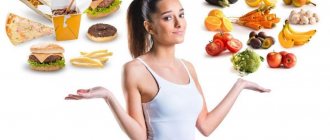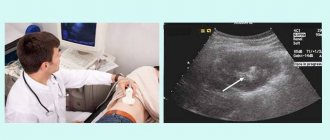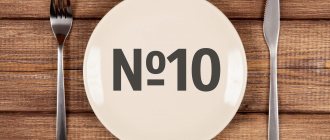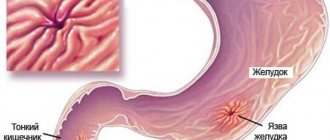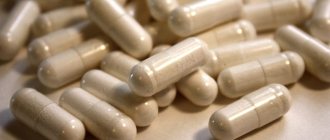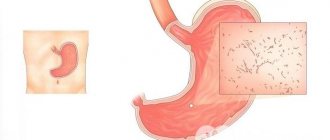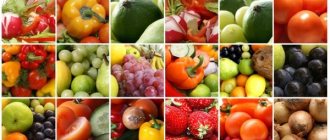In what cases is it prescribed
For urolithiasis, patients are prescribed treatment table No. 14. Such nutrition will ensure that the body receives all the necessary nutrients and will help restore the acid-base balance in the body.
Liquids should be drunk in large quantities , and salt intake should be reduced to 5 mg per day. Therapeutic nutrition is selected depending on the type of stones.
For staghorn
These stones can be enormous in size. They are formed due to increased amounts of protein and salt in the urine.
Therefore, reduce the consumption of milk, cottage cheese, cheeses, raspberries, cranberries, and fatty meats. It is necessary to completely avoid salt.
During a diet for coral kidney stones, it is recommended to use decoctions of medicinal herbs from:
- corn silk;
- barberry;
- immortelle;
- cornflower;
- St. John's wort;
- mint;
- sweet clover;
- motherwort.
The duration of herbal treatment is at least 2 months.
With urate
The formation of stones is associated with an increased amount of uric acid in the body.
Therefore, it is worth limiting the consumption of foods rich in proteins, excluding alcohol and coffee, meat, fish, kidneys, hearts, canned food, spices, pickles, smoked meats, greens, grapefruit, Brussels sprouts and cauliflower from the diet.
During the diet, it is recommended to drink decoctions of medicinal herbs such as:
- birch and strawberry leaves;
- parsley;
- flax seeds;
- rose hips;
- corn silk;
- cornflower;
- knotweed herbs.
Decoctions also need to be taken for 2 months.
With phosphate
The cause of the appearance of stones is a violation of the metabolism of calcium and phosphorus in the body.
You can increase the acidity of your urine by consuming the following foods:
- meat;
- fish;
- eggs;
- meat, fish and mushroom soups;
- pasta;
- legumes;
- milk;
- caviar.
In the sand
When the pH changes and the urine becomes more acidic, sand appears in the kidneys . To stop salt deposits, it is important to adjust your diet.
You should avoid meat, offal, canned food, smoked meats, coffee and alcohol.
It is recommended to include lean meat, fish, hard cheeses, vegetables, cereals and fruits in the diet. This stops the formation of stones and will help remove sand from the kidneys.
What can you eat if you have kidney stones: healthy foods
If you have urolithiasis with the presence of oxalate stones, it is strictly forbidden to eat the following foods:
- asparagus, celery, spinach, parsley, sorrel;
- potatoes, parsnips, beets, tomatoes, eggplants;
- beans and any legumes;
- hot peppers;
- overly spicy dishes;
- fried, smoked;
- fatty food.
The following can be consumed in moderation:
- apples, oranges;
- grapes, plums, kiwi, raspberries, blackberries;
- figs;
- seeds, almonds and walnuts;
- cocoa, chocolate;
- tea and coffee.
https://www.youtube.com/watch?v=Y0JKjv7EQzc
It is recommended to include the following products in your diet:
- vegetables, especially carrots, cucumbers, pumpkin;
- sauerkraut, but it should not be sour;
- black currants, cherries, apricots, watermelons, bananas, melons, peaches, pears.
- dried fruits;
- stale bread;
- fermented milk products;
- soups from vegetables, cereals and lean meat;
- compotes, juices, fruit drinks (but only homemade ones);
- pasta from durum wheat;
- cereals;
- lean meat and fish.
The cause of stone deposition is complex physical and chemical reactions. When metabolism is disrupted, protein matrices are formed in the kidneys, which serve as the “core”. Inorganic components are already attached to these nuclei. In 70% of cases, patients with kidney stones are found to have phosphate, urate, and oxalate stones. If you limit the consumption of harmful foods, acid salts will not precipitate and fill protein matrices.
Stones in the renal pelvis are a consequence of impaired metabolism of oxalic and uric acid, phosphorus and calcium. As part of the diet, foods containing purines are excluded:
- trans fats;
- animal protein;
- gelatin.
If phosphorus-calcium metabolism is impaired, you should give up natural coffee and black tea. Patients with oxalate stones should limit their intake of foods rich in vitamin C:
- citrus;
- celery;
- White cabbage;
- sorrel;
- strawberry;
- spinach.
Features of diet therapy depend on the composition of the stones. The dietary program should be drawn up by a urologist, taking into account the results of a biochemical urine test.
The urologist determines what fruits to eat if you have kidney stones. The basis of the diet should be foods that alkalize or acidify urine. They dissolve salt deposits and remove kidney stones.
Useful foods for kidney stones:
- low-fat cottage cheese;
- unsalted cheeses;
- vegetable sauces;
- soaked vegetables;
- vegetable oil;
- sweet varieties of apples;
- potato;
- squash;
- tomatoes (limited);
- carrot;
- dried fruits;
- Rye bread;
- bearberry decoction;
- weak tea;
- pollock;
- cereals (moderate);
- cod;
- pasta;
- dietary meat.
If you have stones, it is advisable to eat vegetables and fruits with retinol and B vitamins - pumpkin, broccoli, garlic, watermelon, avocado, mango. They remove oxalates from the kidneys and heal the urinary tract mucosa.
For kidney stones, exclude animal fats, semi-finished products, and offal. During relapses of urolithiasis, avoid products with gelatin, vitamin C, and purines. The following should be excluded from the menu:
- sausages;
- conservation;
- lingonberries;
- currants;
- hot chocolate;
- meat and mushroom broths;
- herring;
- mackerel;
- marinades;
- pork;
- baked goods;
- legumes;
- cooking fat;
- spicy snacks.
You are allowed to eat 1 chicken egg per day, prepared in any way. But if the stones consist of uric acid sediments, do not eat the yolks.
Nutritional Features
In different situations, nutrition and diet rules will differ significantly.
To dissolve formations
Therapeutic nutrition helps prevent the formation of kidney stones and will promote their dissolution.
It is recommended to introduce the following products:
- fresh, pickled and soaked vegetables;
- sweet fruits and berries;
- dairy products;
- hard cheeses;
- dried fruits;
- tomato and vegetable sauces;
- low-fat fish;
- seafood;
- decoctions of bearberry, corn silk, oat and wheat flakes.
On exit
When stones pass, the following products are recommended:
- cabbage;
- potato;
- mushrooms;
- beets;
- tomatoes;
- cucumbers;
- cereals;
- honey;
- vegetable oil;
- watermelon;
- lingonberries;
- grape;
- raisin;
- pomegranate;
- currants;
- apples;
- blueberries
It is necessary to avoid spicy, smoked and salty foods, marinades, spinach, herring, fatty meat broths, vinegar, horseradish, mustard, and pepper.
When stones pass, you need to drink up to 2 liters of liquid. You can use decoctions of lingonberry and strawberry leaves, and corn silk.
After removal
After crushing kidney stones, you do not need to adhere to a strict diet. But the diet still needs to be adjusted.
It is important to consume foods that will not create additional stress on the kidneys. Food must be easily digestible, which should be boiled, stewed or steamed.
It is advisable to consume the following products:
- chicken;
- turkey;
- boiled sausages;
- cereals;
- dairy products;
- vegetables;
- eggs;
- fish and meat broths;
- fruits;
- weak tea;
- compotes.
Healthy recipes
The main goals of the diet for kidney stones in women and men:
- acceleration of metabolism;
- prevention of salt precipitation;
- restoration of acid-base balance;
- increased peristalsis of the intestines, bladder and ureters.
In case of exacerbation of urolithiasis, adhere to table No. 6 - a therapeutic nutrition system with a limitation of animal proteins and trans fats. The energy value of the daily diet is reduced to 2100-2300 kcal.
Basic rules of diet therapy:
- Diet. The menu is compiled taking into account the list of prohibited and permitted products. Patients with kidney stones should eat small meals up to 5 times a day. The amount of salt consumed is limited to 5 g/day, as it retains fluid in the body.
- Heat treatment. Products are allowed to be boiled, stewed, steamed, but not fried. Seafood and meat are included in the menu up to 3 times a week.
- Drinking regime. The daily amount of fluid consumed is adjusted to 2 liters per day. It flushes stones, sand and bacteria from the kidneys, reducing the risk of infectious inflammation of the urinary tract.
Kidney stones in obese men and women are often complicated by hypertension. Therefore, they should give up alcoholic beverages.
With obesity, the concentration of uric acid in the blood increases, which stimulates the deposition of salts in the kidneys. To avoid the increase of stones, overweight people need to periodically do fasting days.
A varied diet prevents hypovitaminosis and decreased immunity. When stones form in the kidneys, eat the following dishes:
- Saxon puree. 3 large onions are cut into half rings and boiled for 20 minutes in 1 liter of water. Meanwhile, boil the turnips and potatoes. Mix them with salted onions and add a little milk.
- Fruit puree. Boil 500 g of peach pulp in 1 liter of water for 10 minutes. Blend in a blender until pureed. Mix with 3 tbsp. l. granulated sugar and ½ cup boiled rice.
- Salad with clover. ¼ large white cabbage is cut into strips and mixed with a glass of clover heads. Grind the whites of 2 chicken eggs and add to the salad. Season with vegetable oil and garnish with dill.
- Fruit salad. Diced apricots, apples, pears and plums are mixed in equal quantities. Add 1-2 tbsp. l. chopped hazelnuts and the same amount of low-fat sour cream.
Following a healthy diet improves the functioning of the urinary system and reduces body weight. Thanks to this, the symptoms of hypertension and excess load on the kidneys disappear.
Regardless of the types of stones, there are general rules that apply to dietary nutrition:
- The number of drinks per day should be at least 2–2.5 liters.
- Protein foods should be consumed in moderation, and you should also pay attention to foods rich in purines.
- It is recommended to increase the amount of fiber in the diet.
- It is important to saturate the body with B vitamins.
- Foods high in calcium can be eaten in limited quantities.
- Salty and spicy dishes are excluded.
- Alcohol consumption is prohibited.
In order for daily diuresis to be normal, you need to drink at least two liters of fluid per day
If we talk briefly about each type of stone, then:
- If you have urate stones, you should limit yourself to fish and meat products.
- If you have oxalate stones, you should not eat chocolate, sweets, and some vegetables and plants like sorrel.
- If you have phosphates, you should not abuse alkaline foods, namely cottage cheese, cheese, fruits and vegetables.
These rules must also be followed in cases where there is a hereditary predisposition to the formation of kidney stones. You can stick to the diet loosely, but it is better to limit yourself to dangerous foods in advance. And the rules are also suitable for those who have mixed stones.
Nutrition must be balanced and have sufficient energy value for the normal functioning of the body.
https://youtu.be/dZHBDT8Ylt8
The first principle of the diet for nephrolithiasis is to limit the consumption of foods containing stone-forming substances. Metabolism disorders, for example, of uric acid, provoke the accumulation of urate stones.
The second principle is to change the acidity level of the urine. In alkaline urine, phosphates are actively formed, in an acidic environment - oxalates. The urologist recommends foods that, when consumed, increase the acidity of urine or cause alkalization of the liquid.
General rules:
- sit down at the table 5-6 times. Meals are necessarily fractional;
- strictly adhere to dietary rules, do not consume prohibited foods;
- maintain a drinking regime, remember: lack of fluid impairs kidney function and provokes the accumulation of harmful salts;
- Some types of food are allowed in limited quantities. You cannot violate the daily norm;
- Vitamin therapy should be carried out only as prescribed by a doctor; do not select medications on your own. For example, vitamin A is useful for all categories of patients; taking calciferol and ascorbic acid depends on the level of urine acidity.
The following should be strictly excluded from the diet:
- fresh greens (lettuce, parsley, sorrel, celery, spinach)
- beets;
- chocolate products (including cocoa);
- spices;
- broths;
- smoked meats;
- pickles;
- vitamin C as preservatives;
- offal.
You can eat it, but you need to significantly reduce the amount of the following products:
- chicken meat;
- beef;
- tomatoes;
- carrots;
- sour apples;
- greens, currants, blueberries, gooseberries;
- tea and coffee (you can drink coffee with milk);
- sweets;
- salty foods.
General disorders of mineral metabolism or local inflammatory processes in the urinary system are accompanied by an abnormal accumulation of crystalline salts in the body. Various pathogenetic processes slow down the solubility and excretion of salts, which leads to gradual crystallization and the formation of stones. The main “building materials” for stones are urates and oxalates.
Less commonly, biogenic uroliths consist of phosphates and carbonates.
The formation of urinary stones is associated not only with pathogenetic processes in the body. Microliths are formed when eating foods high in elements that form insoluble compounds with crystalline salts. These include:
- Animal and plant purines. These substances are found in protein foods and some plant components (coffee, cocoa beans). Purines are precursors of uric acid; during catabolism they contribute to the formation of urate cameos. Sodium, which accumulates in the form of monourate crystals in the tissues of the kidneys and urinary tract, is also important in the crystallization of urates.
- Foods high in oxalic acid, calcium, iron and magnesium. When oxalic acid salts and mineral elements combine, oxalates are formed.
Lack of nutritional culture in the presence of urolithiasis contributes to the aggravation of the underlying disease and significantly accelerates the growth of stones.
Diet therapy is included in the therapeutic plan of conservative methods of treating urolithiasis. The fundamental principle of dietary nutrition in the presence of stones is the normalization of eating behavior in order to minimize risks to the urinary system. The diet is aimed at the correct selection and preparation of foods, as well as the elimination of excessive food consumption. The treatment plan allows you to maintain normal functions of the affected urinary organs and prevents the deterioration of clinical indicators.
Therapeutic nutrition for the presence of stones in the kidneys, ureters and bladder is represented by table No. 7 (including numbers 7a and 7b). There are several basic principles of this diet therapy:
- sufficient drinking regime;
- consumption of foods that prevent the formation or proliferation of stones;
- restoration of vitamin and mineral balance;
- gentle methods of heat treatment of food;
- compliance with the diet.
The plan contains specialized recommendations, taking into account the balance of the diet and its energy value.
Drinking regime
In terms of dietary nutrition for patients with urolithiasis, a special place is occupied by the drinking regime. Acidic urine (pH below 5) is the most favorable environment for the formation of stones. The main cause of high acidity is due to lack of water intake.
Tea, coffee and acidic juices, which most people use to replace regular water, cannot provide the required pH level, as they belong to the category of products that shift the pH to an acidic environment.
The recommended daily intake of drinking water is 2-2.5 l/day. If the norm of consumption is observed, the pH of urine shifts towards alkaline balance. At a pH value of 5-7 or higher, the process of crystallization of salts slows down or stops completely, preventing the growth of urolithic formations. Stable maintenance of the recommended water balance allows for complete or partial dissolution of uric acid urate stones at the stage of primary crystallization.
The diet for urolithiasis is based on eating food that has a gentle effect on the functional activity of the kidneys and urinary system. Restrictions on the consumption of different food groups depend on the type of stones. The table shows some products for both types of urolithiasis, where * are marked as undesirable and ** are restricted for use.
| Unwanted Products | Type of stones | |
| Urats | Oxalates | |
| Salt | ** | ** |
| Meat by-products (liver of poultry, pigs, small and large livestock, fish caviar) | completely prohibited | * |
| Fatty meat and fish | ** | ** |
| Rich broths | ** | ** |
| Smoked and canned goods | ** | ** |
| Dairy products | ** | completely prohibited |
| Cheeses, cottage cheese and fatty dressings (mayonnaise, sour cream) | completely prohibited | completely prohibited |
| Coffee, tea, sour juices, cocoa beans | completely prohibited | completely prohibited |
| Marinades, spices and hot seasonings | ** | ** |
| Legumes | completely prohibited | * |
| Mineral waters with sodium, calcium and carbonate | ** | ** |
| Butter pastries | * | * |
| Vegetables and fruits containing oxalic acid (sorrel, tomatoes, radishes, spinach, broccoli, cauliflower, eggplant, beets, chard, sour apples, oranges, pineapples, peaches, currants) | ** | completely prohibited |
| Mushrooms (fresh and processed) | ** | completely prohibited |
| Oatmeal and oat flakes | * | ** |
| Pasta made from durum wheat | * | * |
| Black sour bread | ** | ** |
| Gelatin-containing products (marmalade, milk jellies, jellied meat) | * | ** |
- Eat spicy, salty, fried and smoked foods as little as possible. In some cases, it is necessary to abandon them, at least for the duration of treatment.
- Be sure to follow the drinking regime! You need to drink at least 2-2.5 liters of fluid daily. However, it must be taken into account that if there is a concomitant pathology of the cardiovascular system, then drinking is limited. A stable drinking regime helps prevent abnormalities in kidney function.
- Do not overeat under any circumstances! Fractional nutrition is indicated - in small portions. The best option is five meals a day. This way your kidneys and, in general, the whole body will be able to work in comfortable conditions.
- If there are concomitant diseases of other organs and systems, the diet should be adjusted accordingly.
- The consumption of alcoholic beverages is limited or excluded.
- If you suffer from excess weight, then be sure to strive to normalize it. Extra pounds will not only complicate the course of urolithiasis, but also contribute to the appearance of other unpleasant ailments. Therefore, try to select the menu taking into account getting rid of unnecessary centimeters. But remember, the diet should be gentle, no long fasts and no super-fast methods of losing weight.
- Lead a healthy lifestyle. This, among other things, can be a good source of positive emotions.
- Reasonable physical activity. It is enough to follow simple recommendations:
Basic principles
Compliance with diet No. 14 involves split meals. You need to eat up to 5 times a day.
Principles of therapeutic nutrition:
- reduce salt intake to 5 mg per day;
- eat food only warm;
- drink enough fluid;
- you can drink water, tea, fruit drinks and compotes;
- daily calorie content of dishes should not exceed 2700 kcal;
- one serving of the dish should not exceed 150 g;
- food can be boiled, stewed, baked, steamed;
- drink up to 2 liters of liquid daily.
Drinking regime
The daily fluid intake depends on many factors:
- patient's age and weight;
- level of physical activity;
- nutritional characteristics;
- presence of cardiovascular diseases;
- diameter and composition of stones;
- conditions of the urinary tract and kidneys.
In the absence of serious disturbances in the functioning of the urinary system, drink up to 2.5 liters of water per day. As a drink, decoction of elderberry, rosehip, bearberry, herbal tea, and fruit drinks are used. They have a diuretic effect and stimulate kidney function.
Recommendations:
- be sure to drink 2–2.5 liters of liquid, according to your doctor’s advice – up to three liters;
- half of the total volume is clean water;
- Herbal decoctions are selected by a urologist. For each type of stone you will need certain medicinal plants;
- It is better to replace black tea with green tea; for sweetness, use honey rather than sugar;
- drinks that are too acidic are not suitable for many types of kidney stones;
- Drinks should be consumed warm. It is important to remember: hot tea or ice compote increases the load on the kidneys.
Effect on the body of men and women
Treatment table No. 14 for ICD has a positive effect on the body if you strictly follow all the recommendations.
- There is an increased removal of salts from the body.
- The acid-base balance is normalized.
- The quality functioning of the kidneys is normalized.
- Toxins and waste are removed from the body.
- Blood sugar levels are normalized.
- Metabolic processes improve.
- Body weight decreases.
- The functioning of the gastrointestinal tract improves.
Reasons for education
Under favorable conditions, phosphate stones in the urinary system form and grow very quickly. Urologists identify several reasons for the formation of this type of kidney stones. Namely:
- If there is a water-salt imbalance in the human body due to insufficient fluid intake.
- The chemical composition of the blood has changed. In particular, this refers to an increased level of calcium in the blood, which can occur due to frequent consumption of strong non-alcoholic drinks such as coffee, tea or cocoa, as well as if the diet is dominated by products of dairy and plant origin.
- The patient's physical activity is very low.
- If the patient’s urine has too high a concentration of salts, this 99% indicates that phosphates are being formed in the kidneys.
- Endocrinological diseases and infections (even latent types) are the root cause of the appearance of phosphates in the kidneys.
- Many urologists associate the formation of phosphates in the kidneys with a genetic predisposition to KSD.
- Alkaline urine reaction. It is a consequence of poor nutrition.
- In addition, the formation of phosphate stones can be caused by impaired outflow of fluid from the kidneys (or disruption of the natural processes in the kidneys themselves).
Advantages and disadvantages
Diet No14 has a number of advantages when used:
- there are no strict restrictions on food;
- no need to change your taste preferences;
- during the diet there is no feeling of hunger;
- wide and varied range of products;
- ease of cooking;
- diet helps you lose extra pounds;
- it has a beneficial effect on the body;
- there is a rapid restoration of the urinary system.
The disadvantages of this type of nutrition include:
- strict adherence to time;
- refusal of fried foods;
- minor dietary restrictions.
What is the diet based on?
In addition to choosing the right foods for urolithiasis in men, you need to drink plenty of fluids. We are talking about water, compotes, fruit drinks, herbal decoctions; tea and coffee are not included in the amount of liquid consumed. Every day you need to drink about 1.5-2 liters of water. Preference is given to non-mineral water.
When the normal concentration of ions in the kidneys increases, stones appear. Plenty of fluids and proper nutrition will reduce this concentration.
Dietary nutrition will need to be followed for several years until complete recovery, or throughout life in chronic forms of the disease. Therefore, the diet must be energetically valuable and balanced.
In addition to kidney stones, you simultaneously need to treat concomitant diseases, for example, dysbiosis, pancreatitis, cholecystitis, etc.
Meals should be divided into 5-6 meals. You cannot fill your stomach too much in one meal and load other digestive organs.
The menu is drawn up after examining the body and determining the composition of the stones.
Sample menu
Nutritionists have developed an approximate diet menu for the presence of stones and sand in the kidneys , which people with ICD must adhere to.
But if desired, everyone can independently create their own nutrition plan, taking into account the average daily calorie content of dishes.
It is important to exclude all prohibited foods. It is forbidden to fry dishes. They eat only warm food. It shouldn't be hot or cold.
1 day:
- For breakfast, cook scrambled eggs with tomatoes.
- For second breakfast, eat fresh fruit and drink jelly.
- They dine on boiled beef with vegetable stew.
- For an afternoon snack, eat yogurt with prunes.
- For dinner, make a cucumber and cabbage salad.
Day 2:
- In the morning, eat a vinaigrette seasoned with sour cream.
- For second breakfast, eat cottage cheese with dried apricots.
- They have lunch with buckwheat porridge with a boiled egg.
- For an afternoon snack, bake fish and potatoes.
- For dinner, cook pasta with a cutlet.
Day 3:
- They have breakfast with a bun with milk.
- For second breakfast, eat oatmeal.
- For lunch, eat vegetable soup with a slice of rye bread.
- For an afternoon snack, drink grape juice.
- They eat rice porridge with raisins for dinner.
Day 4:
- They have breakfast with an omelet and rosehip decoction.
- For second breakfast, eat a soft-boiled egg and a slice of rye bread with ham.
- They dine on boiled potatoes, cutlets, compote.
- For afternoon snack, eat 2 apples.
- For dinner, eat a couple of cabbage rolls.
Day 5: This is a fasting day. You can eat dried fruits, cottage cheese, drink kefir, and decoctions.
Day 6:
- They have breakfast with beet salad and carrots.
- For second breakfast, eat an omelet and drink compote.
- For lunch, prepare chicken soup and steamed carrot cutlets.
- For an afternoon snack, drink fruit juice.
- Dinner is cottage cheese casserole with sour cream.
Day 7:
- They have breakfast with oatmeal porridge.
- For second breakfast, eat 2 baked apples.
- For lunch, stew beef and prepare mashed potatoes.
- For an afternoon snack, eat 2 peaches.
- They have cheesecakes with sour cream for dinner.
Let's start eating healthy
With ICD, sand and stones can be cured without resorting to surgery. However, before you start eating properly, you need to determine the type of stones.
Based on what substances are involved in their formation, they are divided into:
- Urate.
- Phosphate.
- Oxalate.
- Combined.
Xanthine and cystine stones may also occur. This type of formation is quite rare and, according to statistics, occurs only in 5% of cases. Experts associate their occurrence with genetic abnormalities and congenital pathologies. But they also need to be taken into account. In this case, the diet will be prescribed purely individually.
Based on the specific type of stones, a list of acceptable and prohibited foods is compiled, after which all that remains is to prepare a daily menu that will have a therapeutic effect and can not only remove the stones, but also prevent their re-formation in the future.
Diagnosis of the types of stones occurs by analyzing the urine to examine the salt sediment. Once the type of stones is determined, the doctor moves on to the next stage, determining the presence of other concomitant kidney pathologies, including inflammatory processes.
Watch a video that explains each type of kidney stone:
https://youtu.be/KxD8OnOqEMw
It is also necessary to take into account the presence of chronic diseases, due to which the doctor will adjust the list of products, for example, cardiovascular diseases, cholecystitis, gastritis, etc.
Permitted and prohibited products
During the diet you can eat:
- all types of soups;
- black and white bread;
- chicken;
- turkey;
- beef;
- veal;
- pasta;
- caviar;
- fish;
- seafood;
- cottage cheese;
- kefir;
- vegetables;
- sweet fruits;
- hard cheese;
- eggs;
- cereals;
- jam;
- honey;
- tomato, sour cream, milk sauces;
- vegetable and fruit juices.
It is recommended to avoid the following foods if you have urolithiasis:
- chocolate;
- pork;
- lamb;
- salt;
- parsley;
- spinach;
- marinades;
- spices;
- horseradish;
- mustard;
- garlic;
- Luke;
- fat milk;
- cream;
- butter.
You will learn even more interesting things about nutrition for urolithiasis from specialists in this video:
What to do after they are removed or dissolved?
Even if the treatment is completed successfully and surgery is not required, after removing the stones you will still have to adhere to a diet, albeit not so strict, but a mandatory one for a long time (in most cases for the rest of your life).
Now nutrition will be based only on eating light foods. Naturally, there will be very strict restrictions on salt intake, and you will have to monitor the amount of liquid consumed. As for the daily protein intake, it will have to be revised downward, but fats and carbohydrates should remain at the same level.
Recommended for consumption:
- herbal decoctions;
- vegetarian soups;
- cereals;
- bran bread;
- fruits;
- unsalted cookies;
- rabbit meat;
- veal;
- omelette;
- chicken fillet.
Prohibited for consumption:
- alcoholic drinks;
- wheat and black bread;
- cocoa;
- baking;
- chocolate;
- fatty foods;
- coffee;
- smoked and salted;
- celery;
- radish.
By following such a diet, you will be able to get good results and maintain them at this level. It is necessary to strictly follow all the doctor’s instructions and unquestioningly follow all instructions.
Only in this case can you be confident in your health. It is very important to completely avoid harmful foods, which can not only cause pain, but also significantly worsen the general condition, again causing a relapse.
Menu for phosphate stones
The basis of the diet of patients suffering from urolithiasis with a predominance of phosphates includes:
- flour products: white and brown bread, baked goods, pasta;
- meat products: beef, lamb, pork, poultry, fish;
- vegetables: greens, cabbage of all types, pumpkin and tomatoes, cucumbers and beets, beans, peas and lentils;
- fruits: sour apples, pears, plums, apricots, figs, grapes;
- berries: currants, cranberries, lingonberries, strawberries, gooseberries;
- butter and vegetable oils;
- mushrooms;
- grains: buckwheat, rice, millet, oats.
A diet for kidney stones helps stop the formation of phosphate stones. In addition, if you follow it for three months, the size of the stones may decrease, which will allow them to pass naturally.
Preventing the formation of phosphate stones
Even the most competent and effective treatment for urolithiasis will not give the expected results if preventive measures are not taken. Prevention of the formation of phosphates in the kidneys involves regular urine and blood tests, as well as maintaining a water load, which means consuming at least 2 liters of water (not liquids, but water) per day.
Regular physical activity, normalizing weight and following dietary recommendations are the main measures to prevent ICD. You should not neglect them, because treating phosphates even with a conservative method is not the most pleasant procedure.
https://youtu.be/CjZEYCTNoN8
Urolithiasis: briefly about the main thing
Urolithiasis or kidney stones is a disease that affects regardless of age and gender.
Urolithiasis or kidney stones is a disease that affects regardless of age and gender. A characteristic feature of the disease is frequent painful exacerbations and relapses. The formation of stones occurs gradually, through the precipitation of salts and subsequent crystallization into larger fractions. Kidney stones are:
- oxalates;
- phosphates;
- urates.
Each type of stone requires individual selection of nutrition and treatment. The doctor prescribes a diet based on the composition of the stones, the health of the genitourinary system, the presence of pathologies and other factors. It is strictly forbidden to eat a diet “for a friend who also has kidney stones” - the wrong menu will harm the patient’s body, aggravate the development of the disease and can provoke another hurricane attack.
Important! Diet therapy is a method that provides a comprehensive solution to the problem and does not replace primary therapy.
Diet with urates: recommendations, menus, recipes
Rules - refusal to consume fatty meat and fish dishes.
Stones are formed due to excessive accumulation of uric acid, have a reddish tint, and are round in shape. Maintenance of nutrition is aimed at changing the type of urine (not alkaline). Urate stones grow very quickly, diet inhibits growth, so sticking to the diet is extremely important. Rules:
- Refusal to consume fatty meat and fish dishes. Limit consumption of lean meat and fish products. Eat boiled fish no more than 2 times a week.
- A ban on offal, canned food, any and all sausages, smoked meats, marinades, animal fats.
- You cannot eat cauliflower, beans, sorrel, figs, alcohol, strong tea, coffee, or chocolate.
- You can have fermented milk products, low-fat cottage cheese (mild varieties), eggs, cereals, vegetable soups, fresh herbs.
- Pasta, dried fruits, bread, pastries, honey and spices can be consumed in moderation.
Important! The diet is of a vegetable-dairy nature due to the reduced level of purines, which influence the formation of urates, specifically in products approved for consumption. You can do fasting days a couple of times a week, but you absolutely cannot starve!
Diet No. 6: diet, recommended dishes:
- Kitchen processing of fish and meat allows frying after preliminary boiling. Process the remaining products in the usual way.
- Limit in your diet: baked goods, pickles, marinades, pork and other animal fat, meat, fish.
- It is recommended to introduce rosehip decoction into the diet (in the absence of pathologies of the cardiovascular system), fruits and vegetables.
Products and dishes for diet No. 6:
Foods and diets after kidney transplant
Soups: vegetable, fruit, cereal, dairy. Good soups are: okroshka, beetroot soup, holodnik, vegetarian borscht.
Second dishes:
- meat and fish of low-fat varieties, 150 gr. 3 times a week, baked, boiled, stewed or fried after boiling;
- cereals - no restrictions;
- egg – 1 pc. per day in any form;
- dairy products every day: cottage cheese, unsalted and mild cheese, sour milk and dishes made from these products;
- sauces only based on vegetable broths, milk, sour cream, natural tomato;
- salads from fresh, boiled vegetables, fruits, natural eggplant caviar, natural squash caviar;
- vegetables in raw and processed form, except sorrel, spinach, lettuce, cauliflower;
- limited spices: vanillin, cinnamon, citric acid, dill, parsley, bay leaf.
For urolithiasis, various cereals are recommended as a diet
- Third courses include fruits and berries, jelly, natural compotes, diluted juices, non-chocolate candies, marmalade, and marshmallows.
- Vegetable fats.
- Flour products: bran bread, rye-wheat bread, limited baked goods.
Diet menu No. 6 for one day:
- Breakfast No. 1. Salad of boiled egg, fresh cucumber, crab sticks, boiled peas and vegetable oil.
- Breakfast No. 2. Baked apple with cinnamon and honey (wash the apple, peel the core, pour in ½ teaspoon of honey and sprinkle with cinnamon, bake in the oven at 200 C until ready), rosehip decoction.
- Breakfast No. 3: wheat bran decoction, viscous rice porridge with milk: 0.5 tbsp. washed rice 1 tbsp. water - bring to a boil, boil and add 1 tbsp. milk - cook until tender, season with cow's butter and honey.
- Dinner. Milk soup with noodles, potato cutlets, jelly.
Advice! Recipe for potato cutlets. For 150 gr. boiled lean meat turned with 1 onion, add 0.3 tsp. vegetable oil, a pinch of salt. Make a cake from mashed potatoes with milk, place a spoonful of minced meat in the middle, pinch, form a cutlet and bake in the oven (C 170-180) until cooked
- Afternoon snack – fresh fruit (apple, banana).
- Dinner. Pizza with lean dough (flour, vegetable oil, salt) with tomato paste and cheese, cottage cheese with honey, nuts and fruits, tea.
At night it is useful to drink rosehip decoction and jelly. You can eat some raisins and soaked dried fruits.
Symptoms
Depending on the size and location of phosphate stones, the pain can be constant and pronounced or be in the nature of spasms and have periodic attacks. Pain may occur after heavy physical exertion or drinking water. Urine may be released slowly and with difficulty, up to a complete stop in the act of urination. Some common symptoms include blood clots, cloudy urine (if protein is present), and a foul odor.
In case of complications, an acute inflammatory reaction may occur. Most often this occurs when the mucous membranes are damaged. Then, to the typical symptoms, a deterioration in the general condition of the body, fever, and vomiting are added.
Symptoms characterize what kind of treatment the doctor needs to prescribe in order to effectively combat both the causes and the consequences of the disease.
Why is it important to diet?
Following all the principles of a diet for kidney disease will help dissolve existing stones, remove them as salt deposits and prevent the formation of new stones. Such nutrition not only improves the functioning of the cardiovascular and digestive systems, but also has a beneficial effect on the overweight body. In humans, the risk of inflammation in the urinary tract is minimized.
If you do not follow all the rules of the diet or abandon it altogether, the patient may experience increased pain and the transition of renal failure, cystitis, urethritis and pyelonephritis to a chronic form.
Diet for urolithiasis: general recommendations
Despite the different diets, nutritionists have developed a number of basic postulates that are indicated for all patients with this disease.
Despite the different diets, nutritionists have developed a number of basic postulates that are indicated for all patients with this disease. The list of restrictions directly depends on the chemical composition of the stones and it is important to fill the missing elements by reducing the consumption of borderline ones, which minimizes the risk of worsening the disease.
The following tips serve as typical recommendations for all types of diets:
- Total fluid intake is 1.5-2.5 liters per day;
- Fractional meals (5-6 times a day) with a single food volume of no more than 350 ml/g;
- Limiting the consumption of salt and hot spices;
- Refusal or reduction in the diet of foods that form stones;
- The most varied diet.
Balanced nutrition in sufficient quantities is the key to successful treatment, but one should not confuse balanced with excess! Inexpensive and nutritious products available for any budget will help diversify the menu.
What changes to make to the menu for different types of stones
Only a urologist can determine how to eat if you have stones in the urinary system. Features of the diet depend on the biochemical composition of the deposits.
Oxalates
The diet for calcium stones in the renal collecting system (PCS) limits the consumption of foods with oxalic and ascorbic acid:
- celery;
- leek;
- tomatoes;
- strawberries;
- figs;
- carrot;
- gooseberry;
- green beans;
- citrus;
- sea buckthorn;
- rhubarb.
To speed up the dissolution of stones, eat foods with pyridoxine and magnesium (liver, nuts, mustard, seaweed, etc.).
If a person drinks enough water, calcium oxalates are not deposited in the kidneys. But if sand accumulates in them, use alkalizing water - Truskavetskaya, Borjomi, Berezovskaya, Essentuki No. 4. To remove oxalates, eat more quince and drink elderberry infusions.
The diet for urate in the kidneys is aimed at reducing foods with purines. They increase the amount of uric acid in the blood, causing its salts to begin to accumulate in the kidneys. The menu is based on:
- fruits – sweet apples, watermelons, citrus fruits;
- fermented milk products – milk, low-fat kefir;
- vegetables - white cabbage, carrots, potatoes.
It is recommended to completely remove canned fish, offal, eggs, and alcohol from the diet. Fish and meat must be boiled.
Phosphates
Phosphate stones are a consequence of alkalization of urine. Kidney stone disease progresses when following a standard dairy-plant diet. To avoid complications, remove from the diet:
- dairy products;
- cocoa;
- celery;
- green onions;
- yeast.
To acidify urine, eat bread with bran, dried fruits, meat dishes, cranberry juice, and Brussels sprouts.
Diet for oxalate stones
The diet for urolithiasis (oxalates) is one of the strictest, since the list of foods not recommended for consumption is quite wide. In addition to sorrel, spinach and other green crops, it includes many types of meat, vegetables and fruits. It is not recommended to include chocolate and citrus fruits, rich meat broths and canned foods in your diet, as they may contain oxalic acid or vitamin C. It is allowed to eat small amounts of carrots, lean fish, legumes, apples and pears, apricots and peaches, and also grapes. Salt and foods containing carbohydrates are also subject to restrictions.
Symptoms of the disease
Very often people confuse pain in the lumbar region with sciatica. They start the wrong treatment, and as a result, trigger the true cause of the pain. As a result of such “treatment,” a stone can form in the kidneys, and back pain most often signals that such formations irritate the mucous membrane of the organ and impair urinary function. The main symptoms of urolithiasis include:
- Pain in the lumbar region, which can radiate to the lower abdomen.
- Urinary dysfunction.
- Temperature increase.
- Nausea, vomiting.
- Presence of blood in the urine.
